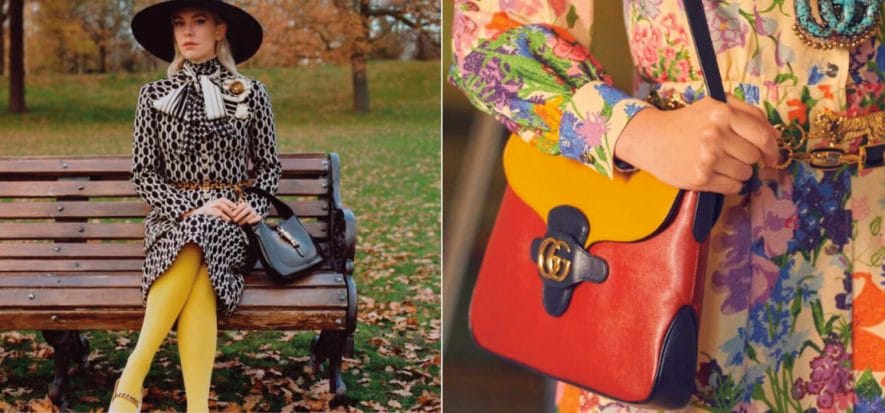What is happening to Kering‘s flagship brand? Gucci‘s magic moment seems to be running out. And his CEO, Marco Bizzarri, should be the least surprised of all, since he had warned in time that the dizzying growth, sooner or later, would stop. But maybe he wasn’t expecting such opaque results. Gucci closed 2020 at 7.4 billion euros, losing 21.5% on a comparable basis. In the fourth quarter, the drop in sales was -10.3%, while analysts had expected -4%. Why has Gucci blamed the consequences of the pandemic more than other Kering brands?
Gucci’s magic moment
The sharp slowdown appears not to have caught Kering’s president and CEO unprepared. François-Henri Pinault, reports Vogue Business, has already identified the solution: the strengthening of all categories “with a special focus on bags” (which already contribute to 55% of sales) and a “growing assortment of high-end products for a more local customer base”. According to analysts, this strategy would help Gucci reach an older clientele. “Precious leathers” and “high-end jewellery” are another opportunity, added Pinault, who is confident for sales in China to restore brilliance to the leading horse of his group.
Analysts
According to analysts, Gucci has suffered more than others from the lack of tourism, as well as the tendency of consumers to buy basic and less fashionable clothes. In the conference call with analysts, Pinault dismissed these theories as follows: “For me, it is absolutely not a normalisation, nor a fashion cycle or anything else. There are specific elements of the crisis, specific elements of the brand”. And what would they be?
Some opinions have already emerged. Eugene Rabkin on StyleZeitgeist is ruthless: “I find Gucci childish. Obviously its infantilism is the core of its popularity, because a large part of the fashion audience today is made up of adult children who have zero interest in anything beyond its surface. Superficial clothes for our superficial age”. Even the Chinese newspaper Ladymax defines Gucci as “a post-modern brand, which embodies a loss of identity and meaning”. Furthermore, Alessandro Michele, with his decorative approach, managed to attract the attention of the public without building a hard core of loyal consumers. The magazine acknowledges Michele’s ability to continually create freshness but this does not make Gucci a classic brand with iconic products.
Expectations
“We expect market pressure to grow on Gucci – says Bernstein’s analyst Luca Solca – to produce efforts to restore momentum”. The cut to wholesale, the landing on Tmall, the noise created around Gucci Fest, the alliance with the retail site The RealReal, the collab with The North Face, were the recent and numerous initiatives undertaken by the brand. Which is always among the most searched online. Will it be enough for the expected relaunch?
Read also:
- Kering, while 2020 was a year to forget for Gucci and YSL, Bottega Veneta shined (+4.8%)
- Kering, the latest leak on the triangulations with Luxembourg










